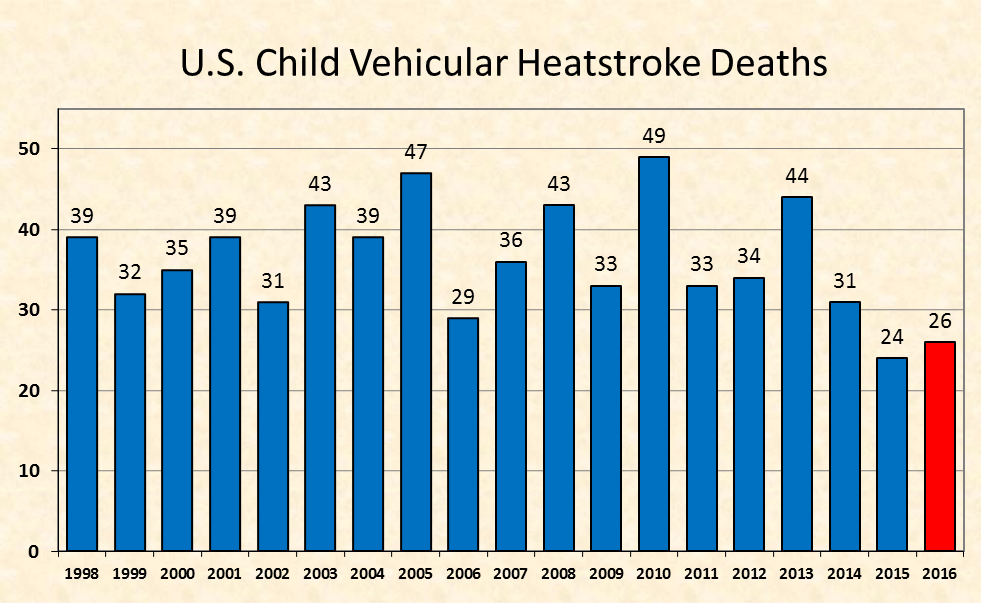Jan Null, certified meteorologist and professor at San Jose State University, CA, has been tracking child vehicular heatstroke deaths since 1998, creating a website on deaths of children in hot cars at noheatstroke.org
According to the website:
- 687 children have died since 1998
- 54% of the children were “forgotten” by the caregiver,
- 29% were playing unintended in a vehicle,
- 17% were intentionally left in vehicle by an adult,
- and 1% were unknown
- the inside of a car can heat up by 19 degrees in 10 minutes and 29 degrees by 20 minutes, cracking the window open had little effect on heating
And if you think that this tragedy only happens in the hotter climates of the US, think again. They have occurred in 46 out of the 50 states. Here is the distribution by state, including 16 in Illinois.

Here is how the numbers look in the US since 1998. Despite the media’s attention on single episodes, there is no downward trend in deaths (keeping in mind that 2016 is only 7/12ths over).

And if you have any doubts about how hot it can get in a car, earlier this year the NWS office in Omaha cooked bacon and eggs on the dashboard of a car.
Kids and Cars, a nonprofit for improving child safety in cars suggested several tips to prevent deaths or serious injury in children from heat in cars:
- Make it a routine to open the back door of your car every time you park to check that no one has been left behind.
- Put something in the back seat to remind you to open the back door every time you park – cell phone, employee’s badge, handbag, etc.
- Keep a stuffed animal in baby’s car seat. Place it on the front seat as a reminder when the baby is in the back seat.
- Ask your babysitter or child care provider to call you if your child hasn’t arrived as scheduled.
- Keep vehicles locked at all times, even in the garage or driveway.
- Keys and remote openers should be kept out of reach of children.
- If you see something, do something – call 911 if you see a child alone in a car.
*Links to other sites does not constitute an endorsement.

